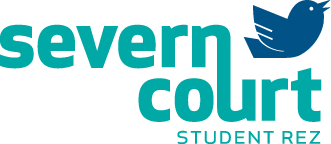You’ve made it to college, and you’re excited about your future. You have big plans and lofty expectations. You’re going to get an excellent education and make some great friends. At the same time, you’re nervous, worried, and overwhelmed because you have to do so many things with very little time.
In order to get the most out of your college experience, it’s essential to use your time strategically. Here are some study strategies to help you through your first year and beyond.
Set Up a Study Environment
The first step to studying efficiently is to have a study environment that works for you. You’ve many options to choose from – from the dedicated study spaces in your Fleming College housing to nearby cafes, the library, the ensuite living room, or your bedroom.
Where you choose to do your studying is up to you, but the environment must be conducive to learning. This could mean having an organized desk or table, enough space to accommodate your textbooks and notes, and a quiet atmosphere where you can focus on your studies.
Stay Organized
Constantly being pulled in different directions can make it challenging to stay on top of everything in college. When you finally sit down to study, you start floundering and don’t know where to begin.
The key is to stay organized and prioritize your studies. The best way to stay organized is to make a to-do list. Having a list of your assignments, coursework, and due dates will help you stay focused and on task. Plus, it’ll help you stay on track if you have exams coming up.
Establish a Routine
Setting up a routine is another crucial strategy for studying effectively and efficiently. Make sure you have a study time like you have a bedtime. A routine is a set of actions that you do at fixed times to structure your day, focus on your study, and feel prepared.
When you have a study routine, you know what to expect from one day to the next. It makes studying less overwhelming because you don’t have to be spontaneous all the time. Your study schedule will keep you focused on the crucial things you have to do each day, helping you to stay on track.
Eliminate Distractions
Studying can be an arduous process and at times, outside factors can get in the way. Distractions can take many forms. It could be as simple as a loud noise or as complicated as a negative thought.
It’s important to eliminate distractions so you can focus on what’s important. Remove all electronic devices, including smartphones, from your study environment. Distractions like social media notifications, chatting with friends, or a noisy environment can make studying less effective.
Study With Friends
Studying with friends can be a great way to increase your productivity because you’ll be able to take turns asking each other questions. Plus, you can bounce ideas off each other and do more studying in less time. It’ll also be more fun. But make sure you choose to study with friends who will help you stay focused and not be distracting.
Take Breaks
You’re putting a lot of effort and time into your studies. But that doesn’t mean you should put yourself through the wringer all day long. You deserve a break – not only does it help you retain more information, but it also prevents you from getting burnt out! So, don’t forget to take a break after every hour of study.
Reward Yourself
It’s also good to reward yourself after completing a certain amount of study time. This will make studying more fun and less of a chore. It will also keep your motivation high.
Treat yourself to your favourite snack or beverage after studying for a particular time. Or maybe you’d want to watch TV, take a walk in a nearby park, or do some quick workout between studies.
Final Thoughts
There are many ways to study, and you can try many different strategies to find what works best for you. Be sure to set realistic goals for yourself, such as studying for two or three hours a day or completing two or three chapters per week. As you progress through your studies, try new strategies to see if they work better for you.






